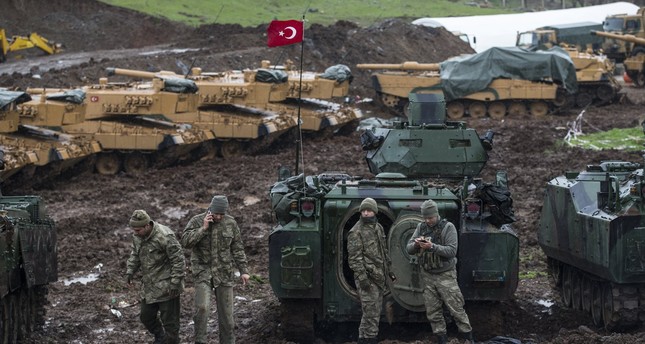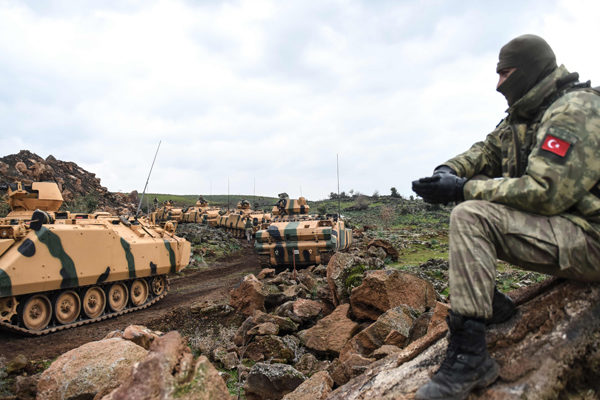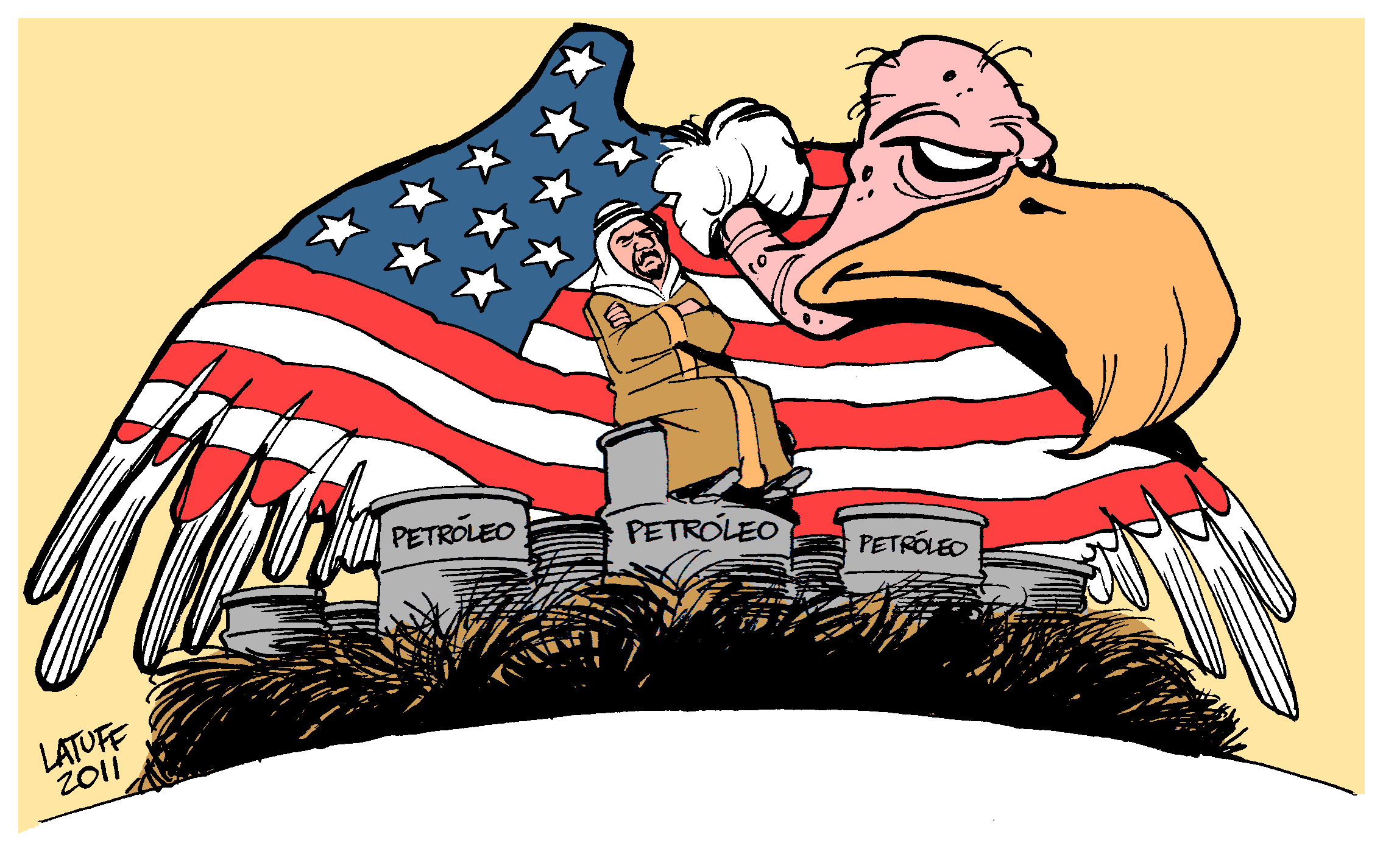The Afrin events are being used to assert the notion that without Russian military guarantees, and a Russian military base deployed in Armenia, Yerevan will be under a constant threat from a potential Turkish offensive, says Benyamin Poghosyan in this op-ed.
Turkey’s military operation in Afrin proved once more that in the current geopolitical situation in the Middle East nothing can be excluded. Obviously, Turkey had made its own calculations when it launched the offensive, and the muted reaction of the main players of the region can be perceived as a proof that some preliminary discussions had taken place before the start of the operation. The nonlinear relations between powers involved in the Middle East makes it really complicated to understand what lies beneath the surface in terms of motives and assessments.
Turkey is attacking US backed forces which can be perceived as a setback for Washington. Simultaneously, any growth of Turkish influence in Syria can be contemplated as a move diminishing Iranian power there which should be welcomed by the current US administration. Russia may hope to drive an additional wedge between US and Turkey, and based on that assumption, obliged by allowing Turkish forces to use Syrian airspace and dislocating a small army presence from Afrin. However, Russia is also keen not to jeopardize its relations with Tehran, who was not happy by Turkey’s actions. Iran has its own Kurdish problem, and any Kurdish autonomy in Syria may bring strategic risks in the long term. From that perspective the Turkish offensive against the Kurds may be perceived as a positive step in Tehran. However, despite the Iran – Turkey – Russia cooperation in Syria, Turkey and Iran still perceived each other as strategic adversaries, vying for regional hegemony and the Turkish advances are not welcomed by Tehran.

Turkish soldiers training with their tanks near Syrian-Turkish border, at Hatay, Turkey (Daily Sabah)
The Turkish offensive is used by Russia as an instrument of influence beyond the Middle East. Some parts of the Russian expert community, as well as Russian propaganda tools, have been busy putting forward the idea that Turkey’s actions once more prove the volatility of a rule based international order, and the lack of guarantees it currently provides especially for small and weak states.
Given the current stage of Turkey – Armenia relations the Afrin events are being used to assert the notion that without Russian military guarantees, and a Russian military base deployed in Armenia, Yerevan will be under a constant threat from a potential Turkish offensive. The idea is disseminated in the context of some discussions in Armenia regarding the necessity of maintaining both the Russian border troops and a Russian military base in Armenia. Some civil society circles are questioning the role of Russia as a unique security guarantor for Armenia and are urging at least a start to discussions on redeployment, i.e. expulsion, of the Russian border troops from Armenia. As of now, these ideas are only being discussed in groups which have very limited influence on broader public opinion, if any. However, the mere fact such discussions are ongoing is a source of concern for Russia, which is obsessed with alleged Western attempts to disseminate anti Russia ideas in the former soviet republics.
Having waited eight years for Turkey to ratify the 2009 Armenia – Turkey protocols, Armenia is going to declare them null and void by this spring. Turkey’s demands to connect ratification of the protocols with a breakthrough in the Karabakh conflict negotiation process are unacceptable for Armenia. This position was once more reiterated by Armenia’s President during his speech at the Parliamentary Assembly of the Council of Europe (PACE), on January 24. This upcoming move by Armenia may surely create more room for Russian manipulations regarding the perceived Turkish threat, and the role of Russia as the sole guarantor of Armenia’s security. The unwavering support by Turkey for Azerbaijan, and their joint pressure on Armenia, including an imposed economic blockade, only plays into Russia’s hands in her efforts to create an image of Armenia’s vulnerability.
Moscow also actively plays the history card. Since the beginning of the 18th century Russia was perceived in Armenian political and religious circles as the only state capable and willing to liberate Armenia from Persian and Ottoman domination. In the early 19th century, after Russia’s victory over the Persians and the incorporation of Eastern Armenia into the Russian Empire, the perception of Russia as a savior became very popular among Armenians. Soviet period propaganda cemented the views of Russia as Armenia’s savior and “big brother”, without whose support Armenians were under a real threat of total annihilation.
Given Russia’s strained relations with the west, and Russia’s strategy to use the post-soviet space as a buffer against alleged Western efforts to weaken or even dismember Russia, these Russian efforts are aimed at furthering Russia’s influence over Armenia, and prevent even a small possibility of a geopolitical shift in Armenian foreign policy. Despite the strained relations between Turkey and the US, Turkey remains a NATO member state. Raising the specter of a possible Turkish attack against Armenia, in the same way that Ankara has behaved in Afrin, also aims to discredit NATO and the US as forces, presenting them as either not willing or not able to restrain Turkey from possible hostile actions against Armenia.
However, Armenia may face only a hypothetical threat of a Turkish incursion, even in the case of a withdrawal of the Russian military base. Potentially, such a withdrawal may critically change the geopolitical structure of the South Caucasus, and bring Armenia much closer to the US. In such a scenario, Armenia may be transformed into the US ally, one that provides additional channels to reach Iran, and simultaneously contain Turkey, if Ankara crosses any red lines in its relations with NATO and Washington. Meanwhile, it should be noted that realistically a Russian withdrawal from Armenia in the next 10-15 years is highly unlikely.
The article was originally published in commonspace.eu 31/1/2018
Dr. Benyamin Poghosyan is Vice President for Research – Head of the Institute for National Strategic Studies at the National Defense Research University in Armenia holding this position since August 2016 and Executive Director of Political Science Association of Armenia since 2011. In 2013 he was a Research Fellow at the US National Defense University. His primary research areas are geopolitics of the South Caucasus, US – Russian relations and their implications for the region. He joined Institute for National Strategic Studies (predecessor of NDRU) in March 2009 as a Research Fellow and was appointed as INSS Deputy Director for research in November 2010. Before this, he was Foreign Policy Adviser of the Speaker of the National Assembly of Armenia. Dr. Poghosyan has also served as a Senior Research Fellow at the Institute of History of the National Academy of Sciences, and was an adjunct professor at Yerevan State University and in the European Regional Educational Academy. He is the author of more than 40 Academic papers in different leading Armenian and international journals. Dr. Poghosyan is a graduate from the US State Department Study of the US Institutes for Scholars Program on US National Security Policy Making. He holds a PhD in History and is a graduate from the Tavitian Certificate Program on International Relations at Fletcher School of Law and Diplomacy.







